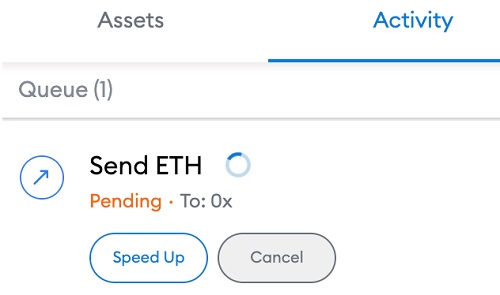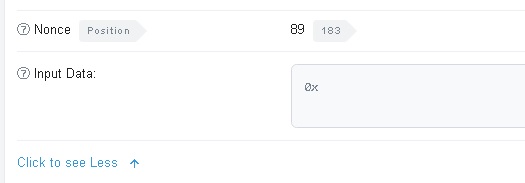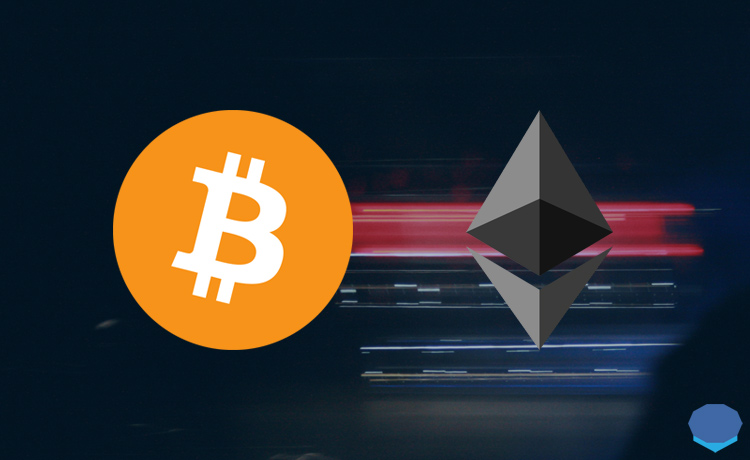Bitcoin and Ethereum transactions may take too much time to arrive at the destination address sometimes.
If you make a transaction with a pretty low transaction fee or there is congestion in the network, your transaction may stay unconfirmed for a very long time.
But there are a few things you can do to prevent your transactions from getting stuck and speed up Bitcoin and Ethereum transactions.
Bitcoin transaction time
The average Bitcoin block time is around 10 minutes right now. You can check the average block time on this page.
If you make a Bitcoin transaction with an average fee depending on congestion in the network, your transaction is likely to get confirmation within 10-20 minutes.
The amount of confirmation required by exchanges for Bitcoin transactions differs.
For example, Binance deposits Bitcoin into your wallet after 1 confirmation and locks an equivalent amount until 2 confirmations are made.
Most cryptocurrency wallets estimate Bitcoin transaction fees and give users options to make fast, standard and slow transactions by paying high or low transaction fees.
You can also set a custom transaction fee when making a Bitcoin transaction to avoid paying more than enough transaction fee.
To use an optimal Bitcoin transaction fee when making a transaction, you can check out Bitcoin fee calculator sites such as Bitcoinfees and this one.
Even though you set a good amount of transaction fee, your Bitcoin transaction may still get stuck sometimes due to the very congested network or that it might still be not enough.
If you want to use a crypto exchange with minimum confirmation requirements and a lot of supported coins, tokens and networks, you can check out Binance.
To open your Binance account with a 20% fee discount, you can use the code ”WRYOO8BZ” or click the button below:
How to speed up Bitcoin transactions
Let’s say you made a Bitcoin transaction with a low transaction fee or the Bitcoin network is really congested.
In that case, your Bitcoin transaction may end up remaining unconfirmed or take much longer than average time to get confirmed.
If your Bitcoin transaction does not get confirmation somehow, you can submit it to Bitcoin transaction accelerators to speed up the process.
There are various Bitcoin transaction accelerators you can use such as ViaBTC, Btcnitro and Bitaccelerate.
You should submit your Bitcoin transaction ID (TXID), which can be found on Blockchain.com and other blockchain explorers, to these services.
Since these services are free (there are paid ones as well), you can submit your TXID to all of them and increase the chance of your transaction being included in next blocks.
You can also use replace-by-fee (RBF) and child pays for parent (CPFP) methods to speed up Bitcoin transactions.
The CPFP method works by creating a child transaction with a high fee that can only be mined by miners after mining the stuck ”parent” transaction.
On the other hand, the replace-by-fee (RBF) method works by replacing the stuck transaction with a new transaction that pays a higher fee.
You can make the RBF and the CPFP transactions on Electrum. The CPFP transaction is also supported in Coinomi and Exodus.
If you want to make a CPFP or a RBF transaction on your Electrum wallet, you can refer to these articles on CPFP and RBF.
Ethereum transaction time
The Ethereum blockchain gets really congested sometimes and users have to pay really high transaction fees to get their transactions confirmed.
Especially those who trade on decentralized exchanges and interact with smart contracts suffer from very high gas prices at such times.
Most cryptocurrency wallets like MetaMask automatically set transaction fees depending on the network congestion and give users an option to make fast, standard and slow transactions.
If you don’t lower the gas price yourself and use an average gas price depending on the network, your transaction will be confirmed within a few minutes.
You can check out the current Ethereum gas prices on ETH Gas Station when making an Ethereum transaction and adjust the fee accordingly.
How to speed up Ethereum transactions
At times when users flood the Ethereum blockchain due to a DeFi mania and such, your Ethereum transaction may stuck pending.
Some wallets like MetaMask allow users to cancel or speed up pending Ethereum transactions.
If your transaction is not processed at the gas price you set, you can re-submit the same transaction with a higher transaction fee.
How to speed up Ethereum transactions on MetaMask
If you use MetaMask, you can speed up your stuck Ethereum transaction by clicking on the ”speed up” button under the activity tab on your MetaMask wallet.
This option will allow you to re-submit the same transaction with a higher gas price so that it can get confirmation.
You can also choose to cancel your pending transaction on MetaMask.

Also sometimes you can’t get rid of pending transactions on MetaMask, they just stay there.
In that case, you need to use the ”reset your account” option on settings>advanced, which will clear out such transactions.
How to speed up Ethereum transactions manually
If you don’t use MetaMask or any other wallet that supports such automatic speed up/cancel transactions, you can do it manually too.
First you should go to Etherscan or any other Ethereum blockchain explorer and search your address, and click on the pending transaction under ”Txn Hash”.
You need to get the nonce value of your pending transaction. You can see this by clicking ”click to see more”. After copying this value, you can make a ”speed up” or ”cancel” transaction manually.

To re-submit and speed up the Ethereum transaction, first enter the exact destination address and amount. And enter your nonce value in the advanced section in your wallet.
Use a higher gas price by checking ETH Gas Station and re-submit the transaction. In this way, your transaction could get confirmation within a short time.
How to cancel Ethereum transactions manually
If you prefer to cancel a pending Ethereum transaction, you need to make a zero value transaction to yourself using the ”nonce” you copied from the pending transaction.
First visit Etherscan and find your Ethereum address. Click on the pending transaction and copy the nonce value which can be found in the transaction details.
Enter your own Ethereum address in the receiver/to field in your wallet, set the amount ”0” and pick a higher gas price.
After including the nonce value, you can make the ”cancel” transaction. If successful, your pending Ethereum transaction will be cancelled.















